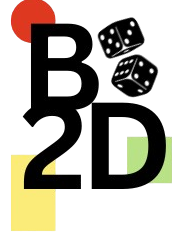I’ve been meaning to get this off my chest for a while, but shame has kept me quiet. Over the past few years, I’ve struggled with gambling—not in the dramatic “I lost everything” sense, but in the more insidious, “death by a thousand cuts” way. And lately, I’ve been trying to understand why I keep going back, even when I know how it ends.
The Beginning: Boredom and Isolation During COVID
It all started during COVID. Like many people, I found myself stuck at home, alone, with nothing to do. Out of sheer boredom, I downloaded a few betting apps—just small bets on sports or some casual online slots. At first, it was harmless. I’d deposit $20, win $50, feel like a genius. When I lost $30, I’d shrug it off. But something shifted over time.
Gambling stopped being just a way to pass the time. It turned into an emotional outlet—like a drug that gave me temporary relief from stress, boredom, and an overwhelming need for control. And that’s the part that messes with me: the illusion of control. Every time I placed a bet, especially after a loss, I felt like I could somehow outsmart the system. Like I could win my way out of my problems.
The Illusion of Control: A Dangerous Trap
In truth, gambling was filling gaps in my life that I didn’t want to face: loneliness, insecurity, career frustration, and a lack of excitement. It gave me quick dopamine hits, making life feel a little less dull. When I won, I felt powerful, like I had it all figured out. But when I lost, I convinced myself that I was just “one bet away” from turning things around. Spoiler alert: I wasn’t.
The worst part? I knew exactly what was happening. I could literally feel the cognitive distortions unfolding in my mind:
- “I’m due for a win.”
- “I’ll stop once I recover my losses.”
- “It’s just entertainment, I can afford it.”
But deep down, I knew these were lies. They sounded smart at the time, but they were just lies, designed to keep me hooked.
The Relapse: Falling Back into the Cycle
I’ve had moments where I tried to quit. A month here, two months there. I deleted the apps, blocked the sites, and read about addiction recovery. But the urges always found their way back. Usually, it happens when I’m tired, stressed, or feeling like life is just… meh. That’s when the itch creeps in, like an old friend that never really left. It’s never truly about the money—it’s about feeling something. The rush. The excitement. The temporary escape.
Taking Steps Toward Recovery: Therapy and Self-Awareness
Recently, I started therapy for the first time in my life. We’re diving deep into the “why” behind my behavior—not just my gambling, but the patterns of emotional escapism and avoidance that led me here. It’s been heavy, but helpful. I’m starting to understand why I turn to gambling as a coping mechanism and how my mind justifies the urges.
It’s been a difficult but necessary process. Therapy isn’t a quick fix, but it’s helping me understand myself and the choices I’ve made. It’s challenging, but it feels like the first real step toward healing.
A Message to Others Struggling
I’m sharing this because I know I’m not the only one. Gambling addiction is sneaky. It starts off looking fun and harmless until it grabs hold and starts running your life. It wears a mask of entertainment, but underneath, it’s a destructive force. If you’re reading this and you’re struggling too, I want you to know: you’re not weak, you’re not alone, and you’re not broken. You’re human.
This isn’t a redemption arc yet, but it’s me finally being honest. Admitting the problem is the first step. If you’re in the same boat, let’s take it one day at a time together. The road to recovery is long, but it starts with acknowledging the truth and being open to change.


No responses yet